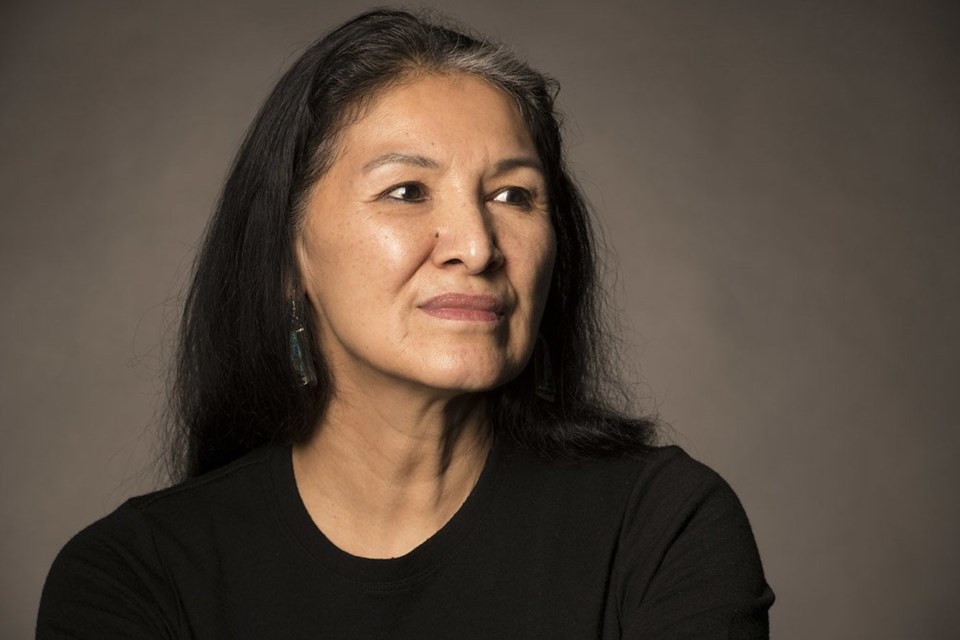The day Renae Morriseau found out her friend and fellow actor Sophie Merasty had died earlier this summer, the two were scheduled to take part in a meeting to discuss the creation of a website for a recent art project.
That project, a one-act play called SRO, had been created over a nine-month period in collaboration with Indigenous women who live in single-room occupancy hotels in the Downtown Eastside.
“For her, art and theatre were an opportunity for healing, an opportunity to delve into characters she may herself have experienced,” Morriseau, a director and actor who lives in North Vancouver, told The Tyee.
Merasty is being remembered as a fierce activist who fought for justice, and as an artist who was able to communicate the experiences of Indigenous women over a nearly four-decade-long career in acting.
For Morriseau, the word that comes to mind to describe Merasty is miyopimatisowin, meaning “good life” in Cree.
“As an actor, when you’re on the pulse of that creative vulnerability, to me that’s why I was saying that’s a good life — miyopimatisowin — because you’re on the pulse of what that represents to you as an actor, embodying a character that is also yourself,” Morriseau said.
“As a director, directing Sophie in two productions, I was able to see how Sophie would embody that.”
Harsha Walia, now the executive director of the BC Civil Liberties Association, first encountered Merasty at the Downtown Eastside Women’s Centre in 2007. Merasty had come for help with a personal issue — she was being evicted from a building in the Downtown Eastside — but Walia recalls that Merasty also wanted to tackle the systemic racism that was affecting her and other women.
“She felt very legitimately outraged about [the] fact that she was being evicted, and she had very strong opinions about Indigenous women in particular facing homelessness and racism at all levels from landlords to police,” Walia said.
“She wanted to talk to media about it and speak about it in a way that wasn’t just about her individual experience.”
Walia also remembers Merasty’s enduring kindness: for instance, she always carried snacks in her bag to share with others who might be hungry.
“She would always make time for other people — she’d sit down and have a meal with someone if she felt that they needed it,” Walia said.
“And she would often go into places that she wouldn’t frequent herself but would go in just to check on people.”
Merasty would later share her personal story in a report published by the Downtown Eastside Women’s Centre called Red Women Rising, which told the stories of several women in their own words.
Merasty wrote about the tragic circumstance that first brought her to Vancouver — the murder of her sister, Rose Merasty, in 1981 — and about the devastating effect of colonialism on her family, from her mother who was hospitalized with tuberculosis shortly after Merasty was born, to brothers who died of AIDS, overdose or assault, to a niece who died of a fentanyl overdose.
Merasty also wrote about being raped as a 13-year-old, being in abusive relationships at 16 and 17, and losing custody of her two children. Because her father was not a status Indian, Merasty’s mother lost her status, meaning Merasty could not access funding for post-secondary education.
“I could not get funding due to the discriminatory Indian Act that made me non-status,” she wrote. “Because I could not receive funding for my education, I eventually had to apply for a student loan to attend the Saskatchewan Indian Federated College at the University of Regina. However, I was unable to pay back the high-interest loan.”
Merasty later attended the 25th Street Theatre School in Saskatoon and began acting professionally in 1983.
Her recent work included SRO in 2019, and a cross-Canada tour with Morriseau for a play called Weaving Reconciliation: Our Way in 2018. She also appeared in Pawâkan Macbeth, a reimagining of Macbeth using “Cree history, legend and cosmology,” by playwright Reneltta Arluk.
In 2007, Merasty was nominated for a Leo Award for best supporting actress for her role in The Unnatural and Accidental Women.
“After Sophie passed is another time that I realized her immense contribution to Indigenous art,” Walia said.
“And the ability for Indigenous women to take on roles on their own terms, which is something Sophie talked about a lot. She didn’t really want to do roles where she was typecast or a stereotype, and particularly not roles where Indigenous women are victims.”
Merasty testified at the National Inquiry for Murdered and Missing Women and Girls and travelled with Walia to present the recommendations of the Red Women Rising report to provincial and municipal governments and to agencies like BC Housing.
“That’s just an immense amount of presence and emotional work that she offered, year in year out, since the ’90s,” Walia said. “That’s really a tremendous loss, not just for organizing in the Downtown Eastside in Vancouver, but really nationally.”




